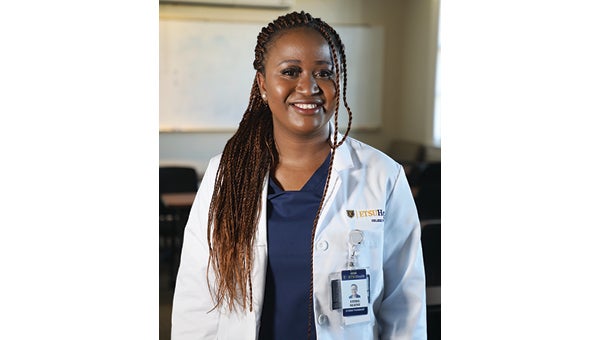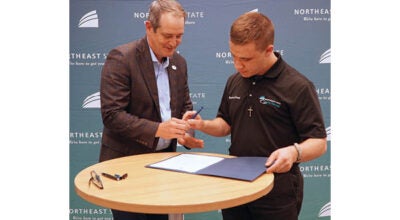Ethel Ngene aims to serve rural community through pharmacy
Published 9:33 am Wednesday, March 29, 2023

- Ethel Akuabata Ngene
|
Getting your Trinity Audio player ready...
|
JOHNSON CITY – “I’m very invested in rural health, in underserved populations, because I, for one, came from that background,” said Ethel Akuabata Ngene, who found what she was looking for at ETSU’s Gatton College of Pharmacy. “They are very invested in rural education and making sure that we are prepared to take up the challenges involved as pharmacists in rural environments or underserved populations.”
Ngene grew up in the small village of Akwuke, Nigeria, and was inspired by the dedication and sacrifice of her widowed mother, who went back to school to earn a bachelor’s degree and became a teacher to provide for her six children. Ngene came to the United States when her uncle adopted her and her brothers. As she approached graduation at Georgia Gwinnett College, where she earned her bachelor’s degree in biology with a minor in chemistry, Ngene was torn between medical and pharmacy school. She made her decision following a visit to her home in Nigeria.
“I realized we don’t actually have a hospital very close,” she said. “Most people utilize pharmacy as their main point of care. You have a cough? Go to the pharmacy. They will give you something to kill the cough. If you have malaria, go to the pharmacy. The hospital is a good drive away. I thought, ‘You know, I would really like to be involved in pharmacy.’ If I end up going back to Nigeria, at least I know I’ll be offering a lot to the community.”
During her interview process, Ngene was impressed by the care shown by the staff and faculty at Gatton College of Pharmacy. Subsequently, the caring relationships she’s built during her time at the college have helped her through trying times – from managing finances at the beginning of her first year to struggling through periods of illness and homesickness.
Now completing her fourth year, Ngene appreciates not only the interest the Gatton College of Pharmacy faculty and staff take in students, but also their focus on rural medicine.
She points to the Remote Area Medical clinics, vaccine clinics, and other volunteer opportunities students have to learn their trade and interact with patients. She also gained a lot from her selection to participate in the Tennessee Area Health Education Centers (AHEC), which help enhance access to quality health care through partnerships with academic programs, communities, and professional organizations.
“I wanted to get more training about how to serve the underserved population, how to communicate properly and make sure that I’m equipped for work in that kind of environment,” Ngene said. “Sometimes you think you know, but you don’t really know. The AHEC program helped with providing educational materials, and I was able to shadow a therapist who was helping people with substance use disorders. I just sat in and listened, and saw how they communicated with them and how people were able to pour out their hearts, telling how they want to be better.”
Ngene was selected by the U.S. Public Health Service (USPHS) to participate in its Senior Commissioned Officer Training and Externship Program (SRCOSTEP). Through this program, students entering their final year of graduate school or professional training receive the basic pay and allowances of an ensign while in school in exchange for committing to enroll in the USPHS Commissioned Corps for two years upon graduation. When she graduates from Gatton College of Pharmacy in May, Ngene will work for the Federal Bureau of Prisons under the USPHS.
While she initially thought she would eventually go back to Nigeria to live and work, Ngene finds herself drawn to stay in the U.S. by the family she has found in the college’s tight-knit community and the need for health care workers in underserved communities. She may decide to remain with the USPHS long term, and perhaps start a consulting firm for long-term care facilities or even become Surgeon General.
“I have already gone beyond as a person, coming from the community that I came from and being the first in my family to have a doctoral degree and work for the U.S. Public Health Service,” she said. “The underserved population is very important to me, as well as the geriatric population. So I would like to go beyond my role as a pharmacist to help out in the community – whichever community I find myself in – by assisting in other things like meal services and donation services for clothing.”
Learn more about ETSU Gatton College of Pharmacy at etsu.edu/pharmacy/.




